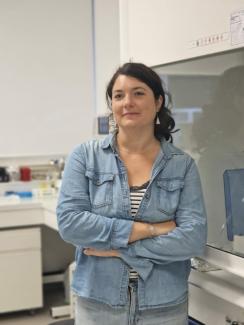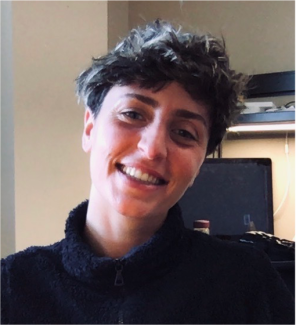ERC Starting Grants: three winning projects coordinated by researchers from Université Paris-Saclay
On Thursday 5 September, the European Research Council (ERC) announced the most recent winners of its 2024 Starting Grants. Three of the laureates are linked to Université Paris-Saclay.
Since they were first launched in 2007, ERC Starting Grants have supported young European researchers, who obtained their PhD two to seven years ago, to pursue exploratory research projects over a 5-year period with €1.5 million in funding. This year, 494 projects have been selected and awarded a total of €780 million. 44% of this year’s Starting Grants were awarded to female researchers – the highest number since the beginning of the Starting Grant funding programme.
Université Paris-Saclay is proud of its three laureates in 2024:
- Julie Carcaud and her project, Olfatask
Julie Carcaud is a lecturer at Université Paris-Saclay, researcher and co-head of the Evolution and Behaviour section of the Evolution, Genomes, Behaviour and Ecology research unit at the Institute for the Diversity, Ecology & Evolution of the Living World (Ideev – Univ. Paris-Saclay/CNRS/INRAE/AgroParisTech/IRD). She has been awarded an ERC Starting Grant for her project, Olfatask, which aims to understand how work is divided among social insects.
The division of labour and task specialisation are key elements which explain the remarkable ecological success of human and animal societies. Social insect colonies are characterised by a highly effective division of labour, with workers generally specialising in brood care in early life and in foraging in later life. Over the years, various theoretical models have been proposed to explain the division of labour, in particular the biological response threshold model, which has received experimental support over the years. However current data still does not explain how the division of labour is implemented for all of the various tasks carried out by a social insect colony. The success of social insect colonies lies in the capacity of its members to behave in a well-organised manner, which requires complex communication among colony members. Ants, wasps and bees use a wide range of pheromones, intraspecific chemosensory messages, to regulate almost every aspect of their colony life. Astonishingly, the role of olfaction in the division of labour has been greatly overlooked, despite it being the main sensory technique used by insects. Using the honey bee Apis mellifera as a model, Julie Carcaud intends to study the relationship between the processing of olfactory information and the division of labour.
- Emmanuelle Casanova and her project, AGROCHRONO
Emmanuelle Casanova is a CEA researcher at the Laboratory for Climate and Environmental Sciences (LSCE – Univ. Paris-Saclay/UVSQ/CNRS/CEA). She has been awarded an ERC Starting Grant her project, AGROCHRONO, which explores the development of agropastoralism in the region bordering India and Iran, between south-east Iran and Pakistan, during the 7th-4th millennium BCE.
For this project, Emmanuelle Casanova will look at the development of agropastoralism, the complementary combination of farming and nomadic pastoralism, which, in this region, appears to break away from traditional and linear practices, with the emergence of new trajectories. In her research, she will use a combination of classical archaeological, bioarchaeological and paleoenvironmental methods, together with the latest developments in biomolecular, isotopic and chronometric techniques, including carbon-14 dating. The diversity of techniques used in this project will provide a singular scientific approach, allowing Emmanuelle Casanova to identify the chronology of the archaeological sites as well as the paleoenvironmental and climate setting that local populations evolved in. The research project will also provide insights into how the domestication of plants and animals influenced the food populations ate.
- Elsa Abs and her project, GAMEChange
Elsa Abs is a member of the MOSAIC-BIOGEO team at the Laboratory for Climate and Environmental Sciences (LSCE – Univ. Paris-Saclay/UVSQ/CNRS/CEA). She has been awarded an ERC Starting Grant for her project, GAMEChange, which studies the impact of changes in soil microbes on future stocks of terrestrial carbon.
Using advanced mathematical models and twenty years of genetic data on soil microbes, this project aims to understand how microbes adapt to climate change and the influence they have on soil decomposition and carbon emissions. With her research, Elsa Abs intends to establish whether microbe adaptation increases soil carbon loss, exceeding current forecasts.



